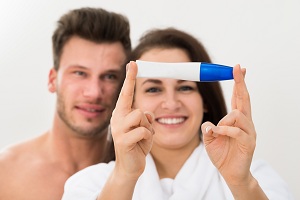A Niels Skakkebaek study at the University of Copenhagen analyzes why the average sperm count is declining. According to Professor, pesticides reduce sperm count and double the risk of testicular cancer.
Over the last forty years, a collapse in male fertility has been occurring in the West. Increased cases of testicular cancer, with related consequences on the ability to conceive. Even for these reasons, more and more couples resort to in vitro fertilization.
The data speak clear: male fertility is decreasing and cancer cases are increasing. The change was too quick to blame genetic factors. Only environmental and lifestyle-related ones remain.
The Danish study points the finger against some pesticides very present in foods consumed daily. Modern life exposes the organism to various substances that damage the endocrine system. Even minimal exposures could have devastating consequences on the ability to conceive.
Part of the blame for the overall decrease in fertility would also be the consumption of sugars. A woman who drinks more than one sugary drink a day would have 16% less chance of getting pregnant after IVF. This last discovery comes to Harvard University.
Source: guardian.ng
















